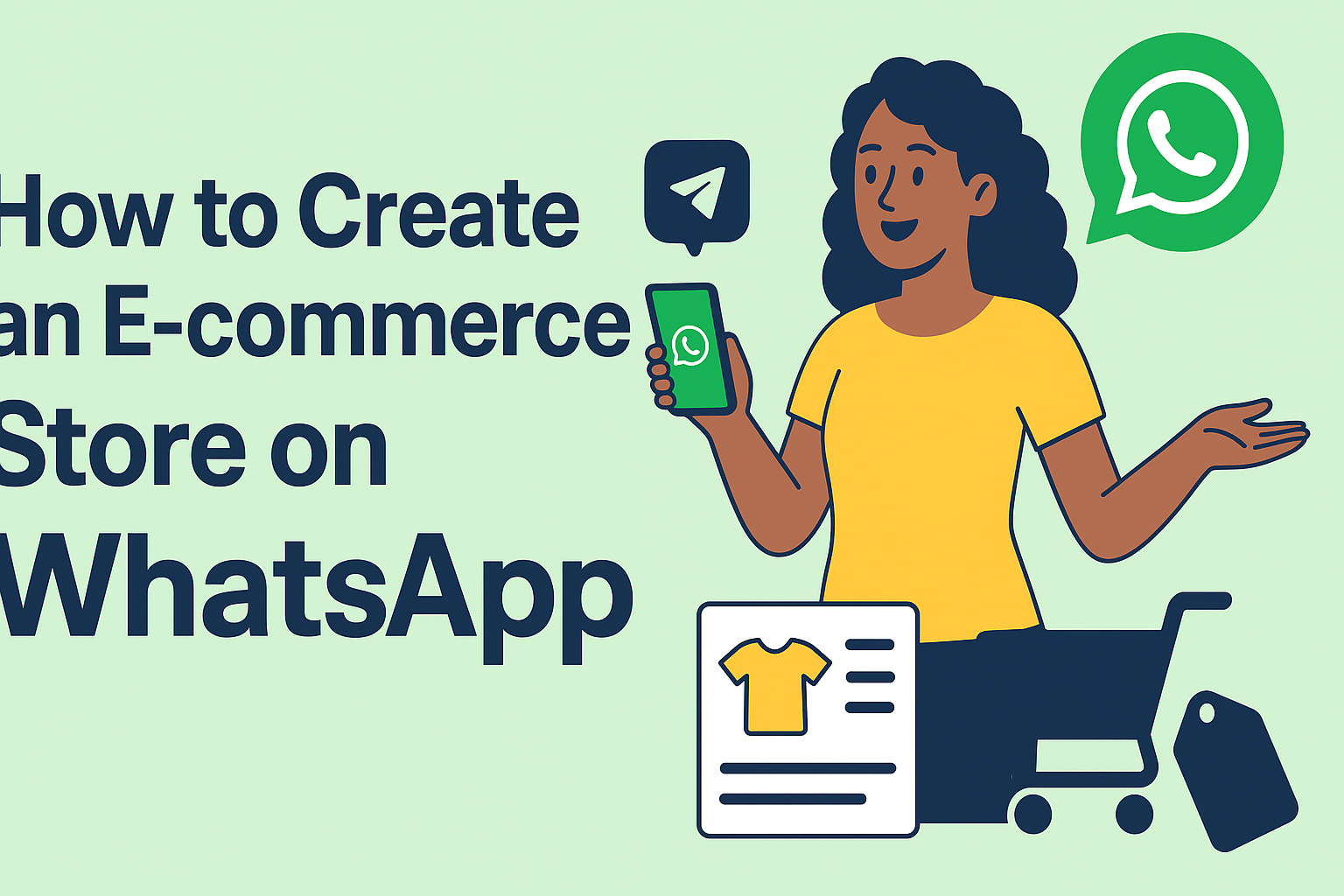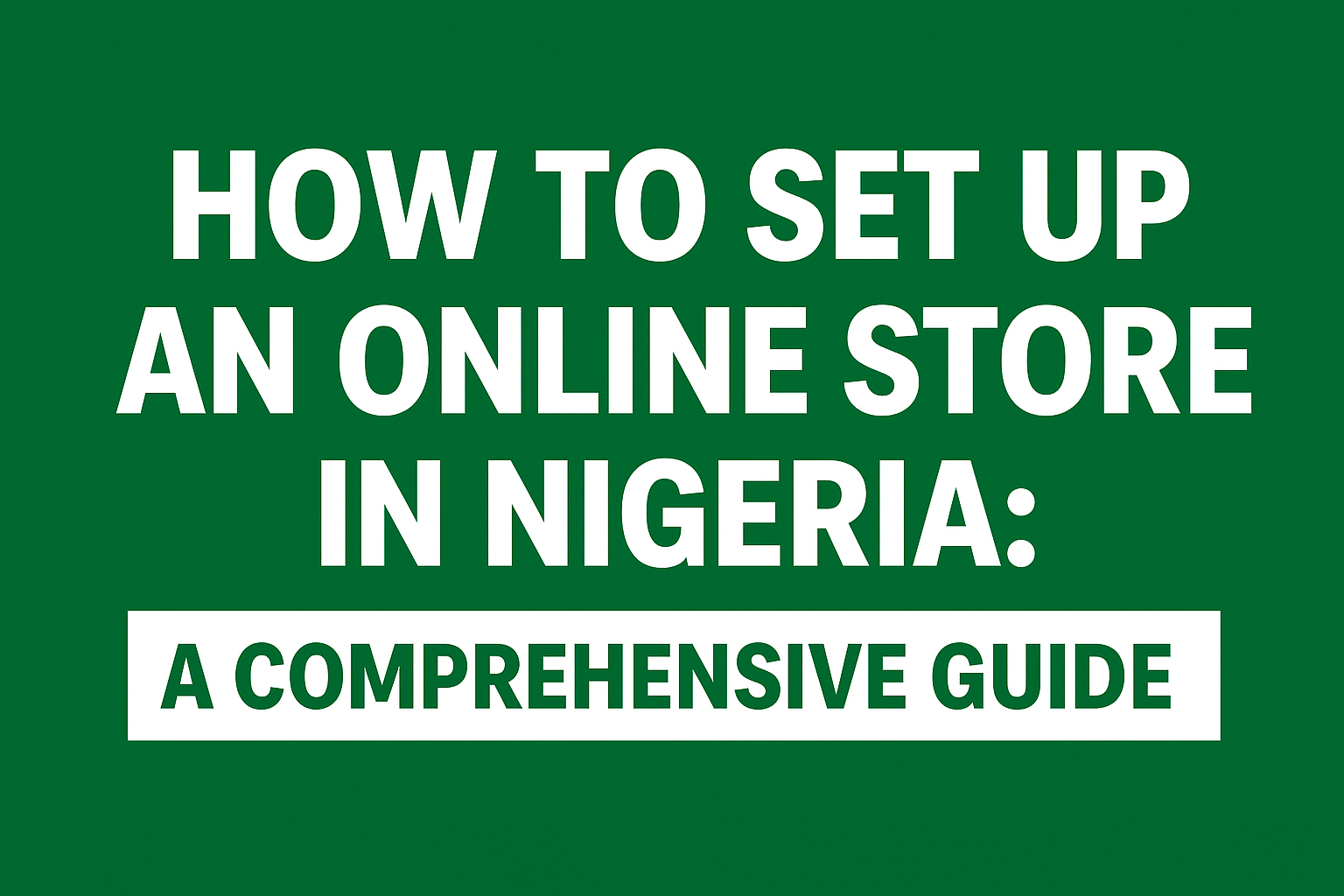How to Create a Successful E-commerce Store on WhatsApp in 2025: A Step-by-Step Guide for NigeriansIntroduction: Why WhatsApp is the Future of E-commerce in Nigeria
E-commerce in Nigeria has experienced rapid growth over the past decade, driven by increasing internet penetration, smartphone adoption, and a demand for fast and convenient shopping experiences. While platforms like Jumia, Konga, and Shopify remain popular, WhatsApp has quietly become the most powerful e-commerce tool for Nigerian entrepreneurs in 2025.
With over 2.7 billion monthly active users globally and more than 90 million Nigerians actively using WhatsApp, the app offers a cost-effective, accessible, and user-friendly way for businesses to connect directly with their customers. For small and medium-sized enterprises (SMEs), WhatsApp eliminates the need for expensive websites, making it possible to launch and grow an online store with little to no upfront investment.
This guide will walk you through everything you need to know about building a profitable e-commerce store on WhatsApp in Nigeria — from setting up your WhatsApp Business account to promoting your products, securing transactions, and scaling your online business.
Read also: How to Earn Income on WhatsApp: A Complete Guide for Youth and Students
Why Choose WhatsApp for E-commerce in 2025?
Before diving into the step-by-step process, let’s look at why WhatsApp is one of the most effective e-commerce platforms for Nigerian businesses today:
1. Massive User Base
WhatsApp is the most widely used messaging app in Nigeria. Your customers are already on the platform, making it easier to connect with them instantly without forcing them to download a new app or create an account.
2. Direct and Instant Communication
Unlike traditional e-commerce websites, where communication feels slow and transactional, WhatsApp allows customers to chat directly with sellers in real time. This creates a more personalised shopping experience, boosting trust and conversions.
3. Cost-Effective
Launching a website or mobile app can be expensive. With WhatsApp, you only need a smartphone, internet connection, and your products — making it one of the cheapest ways to start an online business in Nigeria.
4. Personalised Marketing
Nigerian customers love personal interactions. WhatsApp makes it possible to segment customers, recommend products, send updates, and even share voice notes, making shopping more interactive and engaging.
5. Built-in Commerce Tools
WhatsApp Business now offers features like catalogues, automated replies, broadcast lists, and payment integrations, turning the app into a full-fledged e-commerce platform without coding or technical knowledge.
Step 1: Setting Up Your WhatsApp Business Account
The foundation of your WhatsApp store starts with WhatsApp Business. Here’s how to get started:
1. Download WhatsApp Business App
- Available on both Google Play Store (Android) and Apple App Store (iOS).
- Unlike regular WhatsApp, this version comes with business-specific tools.
2. Register with a Dedicated Business Number
- Use a separate number for your business to avoid mixing personal and business messages.
- Verification is done via SMS or call.
3. Create a Professional Business Profile
Fill in all details under “Business Profile”:
- Business Name – Should match your brand (avoid nicknames).
- Business Description – Clearly state what you sell.
- Business Address – Physical or online.
- Business Hours – Let customers know when you’re available.
- Website Link – If you have one.
- Email Address – For additional support.
4. Set Up Messaging Tools
- Automated Greeting Messages – Welcome new customers instantly.
- Away Messages – Inform customers when you’re offline.
- Quick Replies – Save time by storing answers to FAQs like prices, delivery fees, or product availability.
Pro Tip for Nigerians: Use Pidgin English or local languages (Hausa, Yoruba, Igbo) where appropriate. This builds relatability and increases trust.
Step 2: Adding Products with WhatsApp Catalogues
The Catalogue feature turns your WhatsApp profile into a mini online shop.
- Go to Business Tools → Catalogue.
- Add product images, name, description, and price.
- Include links for direct payment if you use Paystack, Flutterwave, or other Nigerian gateways.
- Regularly update the catalogue with new arrivals and promotions.
This feature reduces endless back-and-forth questions from customers and makes your store look more professional.
Step 3: Promoting Your WhatsApp Store
Having a WhatsApp Business account is only the beginning — the real work lies in promotion and customer acquisition.
1. Leverage WhatsApp Status
- Post daily product updates, flash sales, and behind-the-scenes content.
- Nigerians are heavy WhatsApp Status viewers, making it a free and effective marketing tool.
2. Use Broadcast Lists
- Send promotions, discounts, or product updates directly to multiple customers.
- Keep messages personalised to avoid looking like spam.
3. Create Engaging Content
- High-quality images, demo videos, and customer testimonials work best.
- Write clear, persuasive product descriptions highlighting benefits, not just features.
4. Utilise Groups and Communities
- Create niche WhatsApp groups (e.g., “Affordable Ankara Styles in Lagos” or “Best Organic Skincare in Abuja”).
- Encourage customer discussions, reviews, and referrals.
5. Cross-Promote on Social Media
Share your WhatsApp store link on:
- Instagram Shops
- Facebook Marketplace
- Twitter/X trends
- TikTok product videos
Pro Tip for Nigerians: Use short WhatsApp links (via
wa.me/234XXXXXXXXXX) to make it easy for customers to contact you.
Step 4: Handling Payments and Secure Transactions
Trust is the backbone of e-commerce. Nigerian buyers are cautious, so ensuring safe payments is key.
1. Use Trusted Payment Gateways
Integrate secure options like:
- Paystack
- Flutterwave
- Opay
- PalmPay
- Bank Transfers (for older customers)
2. Avoid Sharing Personal Bank Details
Instead of giving customers your private account number, generate secure payment links through gateways.
3. Offer Payment on Delivery (POD)
Still one of the most trusted methods in Nigeria, but use it carefully to avoid losses.
4. Provide Clear Return and Refund Policies
Transparency builds trust. Let customers know:
- Return window (e.g., 7 days).
- Conditions for refund (e.g., product defects).
- Who pays for return shipping?
5. Keep Communication Professional
- Send invoices or receipts after payment.
- Update customers on order status until delivery.
Step 5: Building Long-Term Customer Relationships
Selling on WhatsApp is not just about transactions — it’s about community building.
- Respond Quickly: Nigerian buyers expect fast replies.
- Personalise Interactions: Address customers by name and recommend products based on their past purchases.
- Reward Loyalty: Offer discounts for repeat buyers, run referral bonuses, or create a VIP WhatsApp group for your best customers.
- Encourage Reviews: Ask happy customers to share testimonials or post photos of your products in use.
The stronger your relationship, the more likely they’ll refer you to friends and family.
Common Challenges of WhatsApp E-commerce in Nigeria (and Solutions)
| Challenge | Solution |
|---|---|
| Customers fear scams | Offer secure payment options and refund policies |
| Too many inquiries but low sales | Use catalogues, price lists, and automation to save time |
| Competition is high | Differentiate with branding, customer service, and packaging |
| Poor delivery logistics | Partner with reliable couriers like GIG Logistics, Kwik, or Bolt Food Delivery |
Future of WhatsApp E-commerce in Nigeria (2025 and Beyond)
In 2025, WhatsApp is introducing more AI-powered shopping features, including:
- Chatbot-assisted shopping for instant responses.
- In-app payment systems (already rolling out in some countries).
- Deeper Meta integration with Facebook and Instagram Shops.
For Nigerian entrepreneurs, this means WhatsApp will remain the fastest and most accessible path to online business success for years to come.
Conclusion
Creating an e-commerce store on WhatsApp in 2025 is one of the smartest moves Nigerian entrepreneurs can make. It’s cost-effective, customer-friendly, and perfectly suited to local shopping habits.
By setting up a professional WhatsApp Business account, showcasing products with catalogues, promoting effectively, securing transactions, and building long-term customer relationships, you can grow a sustainable and profitable business — all from your smartphone.
If you’ve been waiting for the right time to start selling online, that time is NOW. WhatsApp is no longer just a messaging app; it’s your new online shopfront.
Grow Your Business with Us.
At ENGRMKS & CO., we help entrepreneurs and businesses in Nigeria build powerful online presences through web design, development, digital strategy, and e-commerce solutions.
Whether you’re starting your first WhatsApp store or scaling an existing online business, our team is ready to guide you every step of the way.
Let’s build your digital success story together.
???? Contact us today at engrmks@gmail.com





